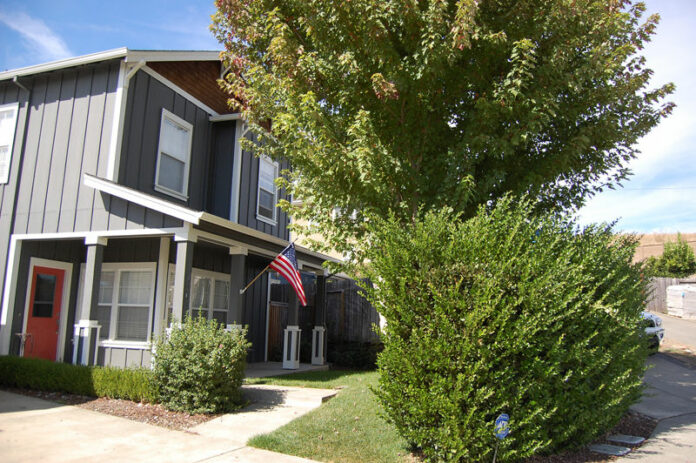Wording to an amendment to the city’s Growth Management Ordinance (GMO) was approved unanimously by Healdsburg City Council at its regular meeting at city hall on Oct. 7.
The amendment will appear before voters as a ballot measure in the March 3 primary election.
After some wordsmithing by the council and public, the language will read, “Shall the city of Healdsburg Growth Management Ordinance be amended to permit the currently allowed average of 50 units per year of multifamily, income-restricted rental housing as authorized by the voters in 2018 also be offered for sale?”
The city is crafting the measure to expand possible uses of the 50 potential units approved by Measure P in 2018, which were exempted as, if built, they would be deemed “affordable” units. The potential units are currently only allowed to be built as rentals.
The city was hesitant to use Measure P in the ballot language, as there may be other Measure Ps on the ballot.
The measure does not increase the amount of future units allowed under the GMO.
The city will have the first reading of the ordinance to place the measure on the ballot at its meeting on Nov. 18. On Dec. 2, the second reading of the ordinance will solidify the measure and Dec. 6 is
the deadline to submit the ballot language.
The language can only be tweaked slightly from this point out. The content has to remain the same, as this language is being used to go through the California Environmental Quality Act analysis.
Housing stock uptick
The city also approved the purchase of a unit to be sold as an affordable home at 1735 Palomino Court.
The house, which is a part of the city’s Inclusionary Housing Inventory, was appraised at $785,000 and had a balance of $598,847 after deductions from the city. The city will further subsidize the house by $48,847, bringing the sale price to whoever purchases it to $550,000, which is what is statistically affordable for someone making 150% of area median income.
The subsidy will come from the Inclusionary Housing Deposit.
The city will only briefly hold the deed to the land due to a double escrow process. The subsidy to the house will be tied to the land, and not the owner, a switch from how the house had been restricted.
“We have an opportunity to reset this,” Mayor David Hagele said of the unit’s deed restriction change.
“This is a great way to keep this unit affordable for multiple families,” Housing Administrator Stephen Sotomayor said.
Resident Richard Burg questioned whether this type of sale would become a pattern for houses in the city’s affordable stock.
While Sotomayor was supportive of the purchase, he said future unit deals would be on a case-by-case basis, as there were nuances to each house, such as the market price at the time and what income category the home would be targeted at.
City staff said there was a “huge demand” for the home.
Climate emergency
The city approved a resolution declaring a climate emergency, which will be incorporated into the priorities of the city’s Strategic Plan.
The resolution brings the plan into alignment with Healdsburg 2040’s priorities, which included climate during its SDAT process. The growing rift between the resident-created plan and the city’s draft goals had become a source of frustration for some members of 2040 during previous workshop sessions.
Public comment was driven primarily by the desire to see more than platitudes when it came to addressing climate change. Real metrics were desired as well as a way for residents to check the progress of the city’s efforts.
City Councilmember Joe Naujokas said that the resolution was a good starting point, and said he was excited to begin working with the Regional Climate Protection Agency (RCPA).
“I consider this a statement of values,” he said. “We’re going to be collaborate with the RCPA to establish and implement a climate emergency mobilization strategy. That’s where the substance is going to happen.”
Councilmember Shaun McCaffery also said he wanted to see climate impacts listed on council reports for agenda items, similar to how budget impacts are listed.
Two members of the public also called for action on the tourism industry, claiming visitors are creating a large local impact on greenhouse gas emissions from flight travel. Both have made similar comments before, particularly to the North Entry Area Plan (NEAP) and its potential hotel.
56
F
Healdsburg
November 22, 2024








